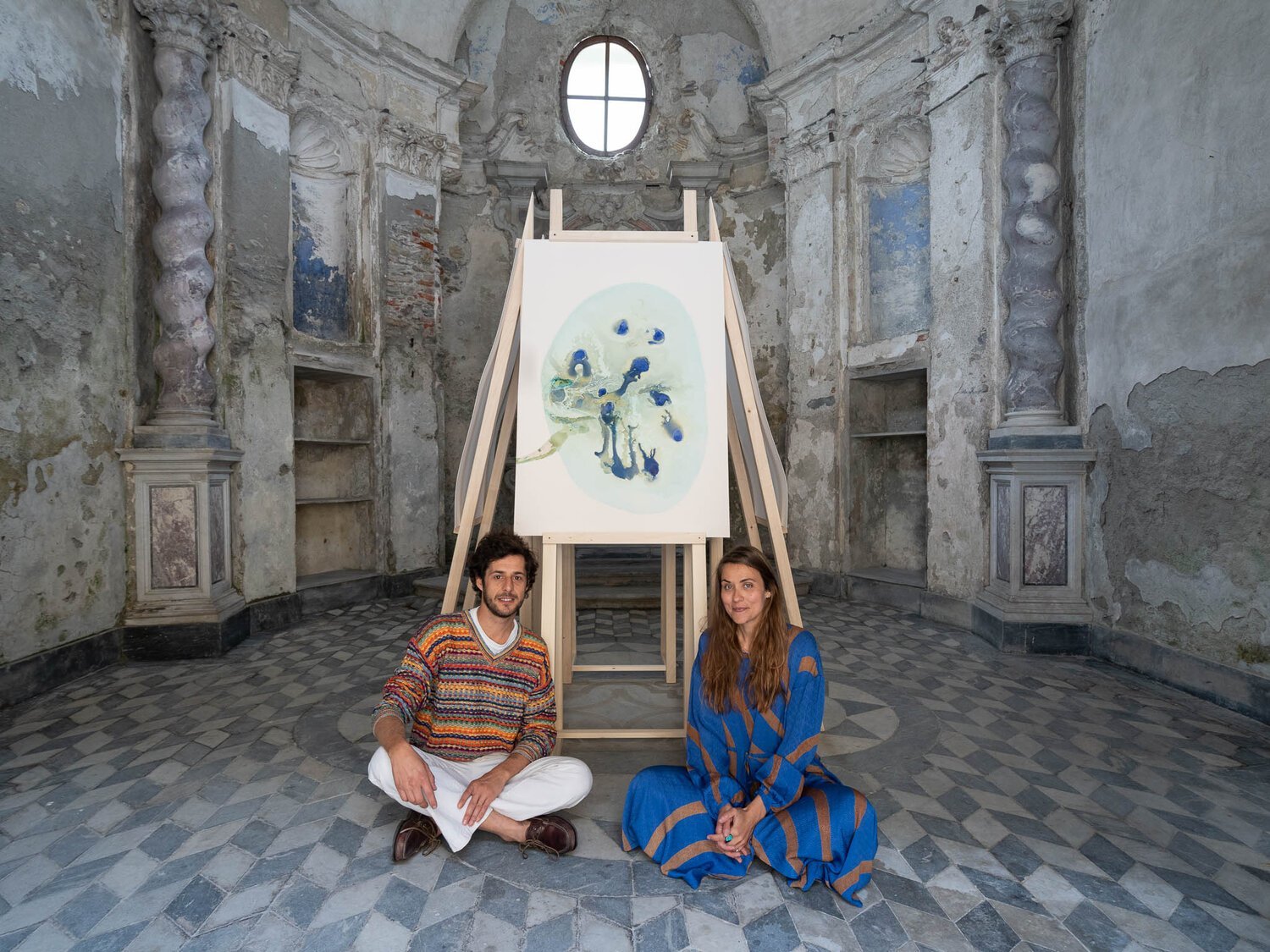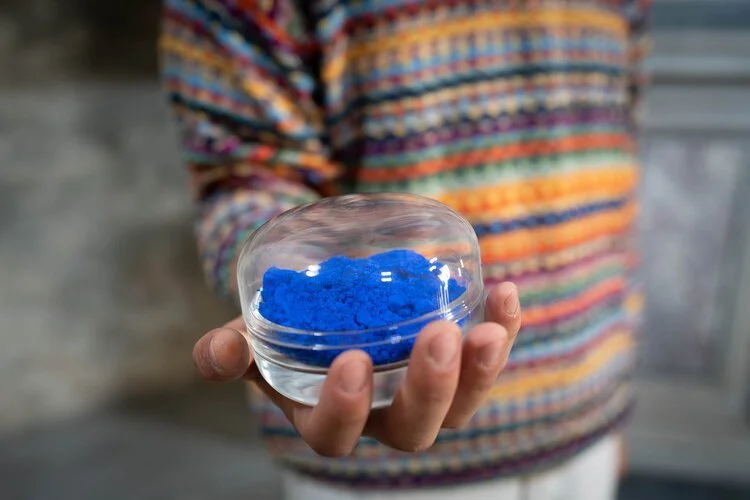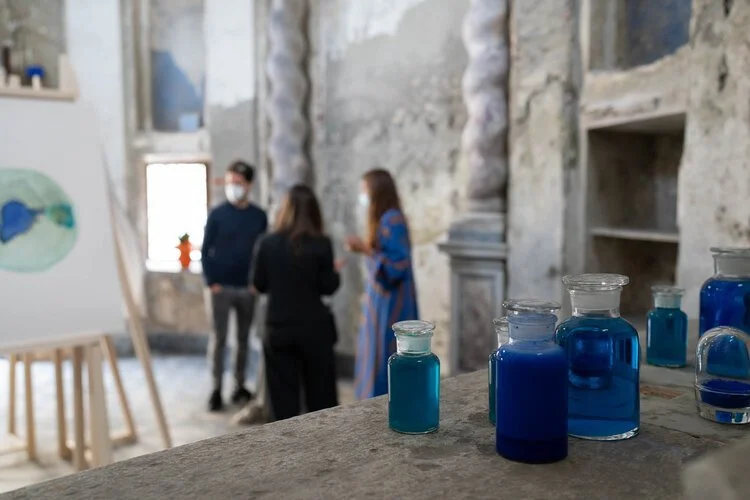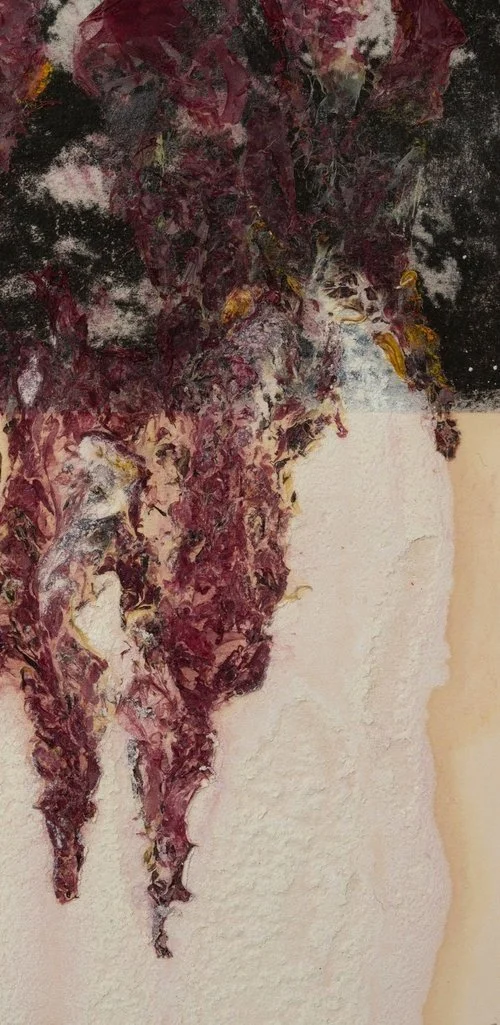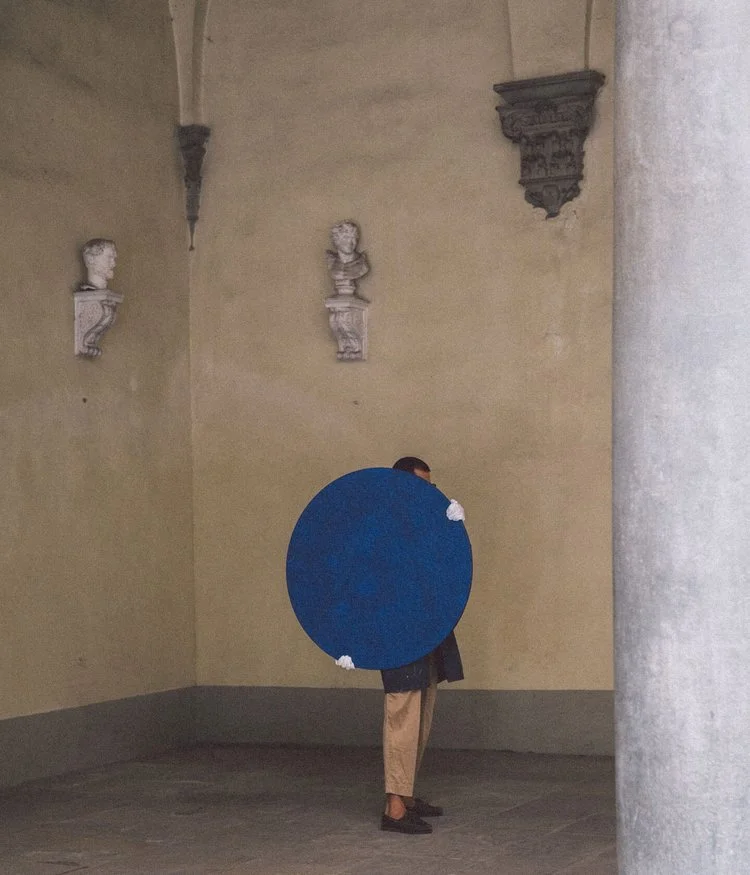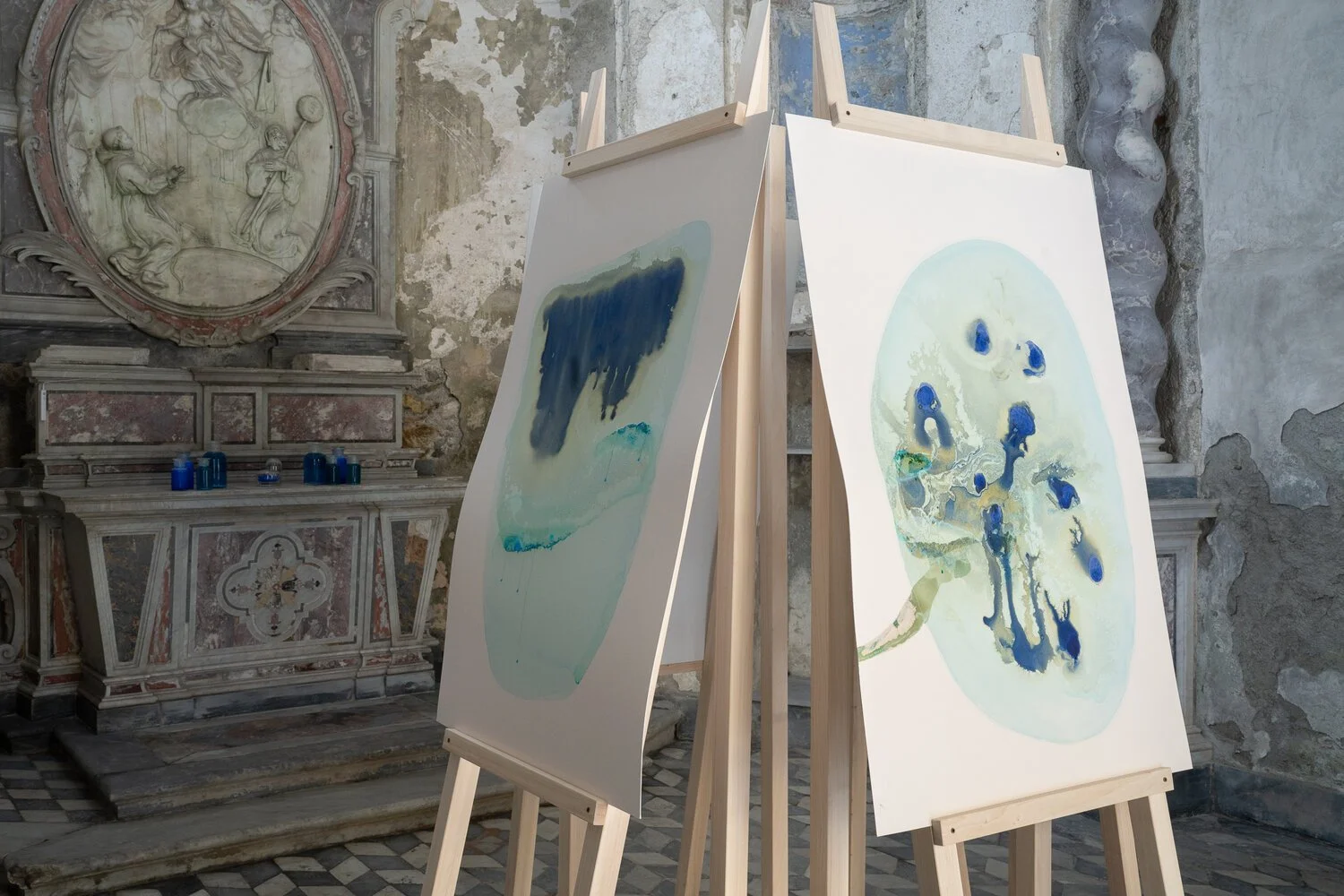A conversation with Marta Abbott and Nicolas Denino
What immediately struck us was the setting. The architectural swirls and beauty of its peeling walls and their washed-out tones, the Baroque church of Madonna del Carmine on the outskirts of Lucca set a magnificent contrast to the easels that caught our eye.
This, we discovered, was the latest installation and the first joint collaborative project by creatives Nicolas Denino andMarta Abbott entitled ‘Liminal Forms’. Co-curated by Caterina Licitra and Lorenzo Belli, the exhibition sought to capture the ephemerality of transitory states.
Nicolas Denino and Marta Abbott © Dario Borruto
The personal journeys of both Nicolas and Marta are multi-faceted and fascinating ones: born in Montevideo and with extensive experiences in the worlds of fashion and design that took him across Uruguay, Europe and then New York, Nicolas is now based in Italy between Milan and Florence. His work is an exploration of the sense of anxiety that shapes contemporary society, creating circular forms in blue shades across differing media that represent the difficulties of connectedness this anxiety creates.
Equally as diverse and eclectic, Marta was born in Holland and raised between the United States and the Czech Republic. Her path drew her to live in New York, before settling in Rome where she is now based. Her creative work reflects her fascination with the natural world, using paper and canvas as a backdrop to her interpretation of the nuances that are hidden within our ever-transforming relationship with nature.
© Dario Borruto
© Dario Borruto
While creatively very diverse, Marta and Nicolas have woven their common threads together and explored the transitory space of the liminal to create four distinct artworks that have been created with shades of blue ink. The result is a creative energy that reflects translucence and the beauty of all that transforms. Captured by this energy and its resonance with the sublime church setting, we asked Marta and Nicolas ten questions drawn from the Proust Questionnaire - a questionnaire that has its origins in a parlour game that had been popularised by French essayist Marcel Proust, designed to reveal the player’s true nature.
What is your idea of perfect happiness?
MA: I don’t know if I carry an idea an idea of perfect happiness necessarily, but I am usually happiest when I’m in the full swing of creating or when I’m by the sea.
DN: When I am experimenting and I see optimal results. When I meet my loved ones.
What is your current state of mind?
MA: Peripatetic.
DN: Liminal state.
Flesh, Flowers and Venus 1, 2023. Marta Abbott.
Liquid Project installation, Florence. 2020. Nicolas Denino
If you were to die and come back as a person or a thing, who or what would she/he/it be and why?
MA: I think I might like to come back as a cloud so that I could travel all around the globe with grand views of both land and sky, and so that once in a while I could turn to rain, travel back down to Earth and touch the ocean.
DN: To be the sea, because I think it represents me. Free, deep, calm and furious.
If you could change one thing about yourself, what would it be?
MA: Perhaps the desire to change things about myself! I am currently doing my best to learn more patience, though.
DN: I would like to have more patience.
What is your greatest regret?
MA: I don’t like to focus too much on regrets, but I do live according to the belief that you regret the things you do not do more than the things that you do.
DN: Not having spent more time with my grandmother.
What is your most treasured possession?
MA: A painting my son made for me.
DN: Being curious.
What is the quality you most like in a man?
MA:Honesty and a sense of humor.
DN: Honesty and helpfulness.
What is the quality you most like in a woman?
MA: Honesty and a sense of humor.
DN: Honesty and helpfulness.
What do you consider your greatest achievement?
MA: My son, Oliver.
DN: My happiness.
Liminal Forms by Marta Abbott and Nicolas Denino. © Dario Borruto
What is your motto?
MA: When in doubt, say yes.
DN: Sharing is caring in my language. Compartir es vivir.

